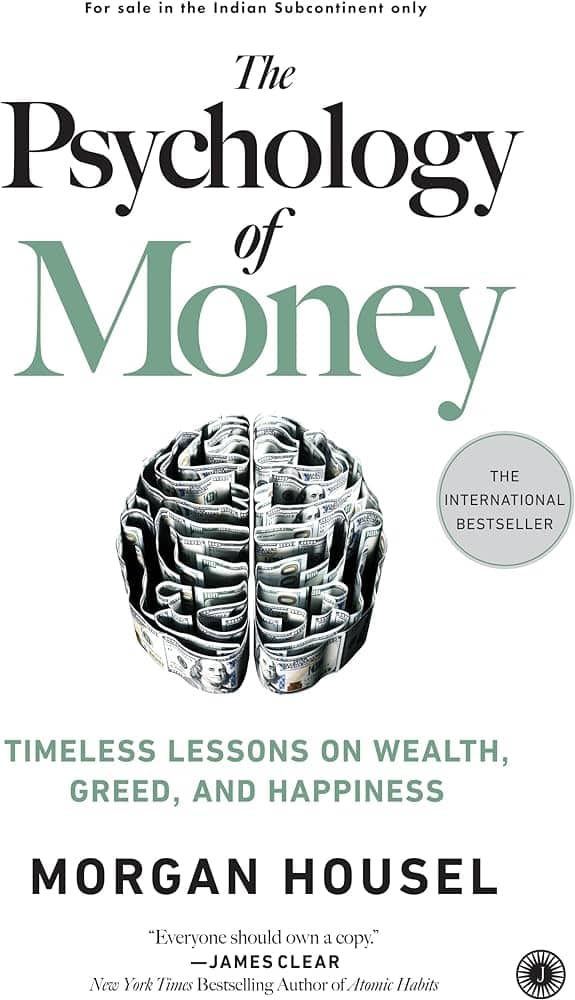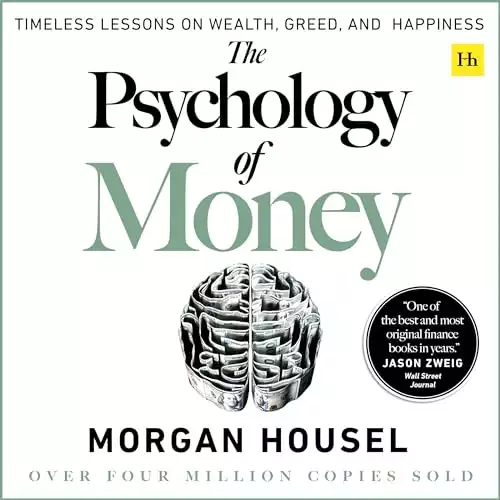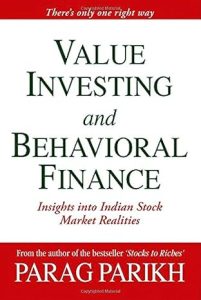Title and Author
- Book Title: The Psychology of Money
- Author: Morgan Housel
- Publication Date: September 2020
Introduction
The Psychology of Money," written by Morgan Housel, delves into the behavioral aspects of personal finance and investing. Rather than focusing solely on technical financial knowledge, Housel emphasizes that financial success is more influenced by how we behave than by what we know. This book is a must-read for finance professionals because it highlights the critical role of psychology in financial decision-making, providing insights that can enhance client relations and personal investment strategies.
Content Summary
Key Concepts
- Behavioral Finance: Housel discusses how psychological biases and emotions significantly impact financial decisions. He illustrates that understanding these biases can lead to better financial outcomes.
- Wealth vs. Richness: The book distinguishes between accumulating wealth and living a rich life. Wealth is what you don’t see (savings and investments), while richness is what you do see (material possessions and lifestyle).
- Time and Compounding: Housel emphasizes the importance of time in wealth accumulation. He explains how patience and the power of compounding are crucial for financial success.
Core Topics
- Financial Independence and Frugality: The book explores the concept of financial independence through frugality and prudent financial management. Housel provides examples of how living below one’s means can lead to long-term financial security.
- Luck and Risk in Finance: Housel discusses the roles of luck and risk in financial success. He argues that acknowledging the influence of luck in finance can lead to more humility and better decision-making.
- Stories vs. Statistics: The book highlights how narratives shape our financial decisions more than statistics. Housel explains that people are more likely to be influenced by compelling stories than by raw data, which can sometimes lead to irrational financial behavior.
- Historical Influence on Financial Behavior: Housel examines how historical events shape financial behavior and attitudes. He argues that personal experiences with money, especially during formative years, have a lasting impact on financial decisions.
Critical Analysis
Strengths
- Engaging Writing Style: Morgan Housel's storytelling ability makes complex financial concepts accessible and enjoyable. He uses anecdotes and real-world examples to illustrate his points, making the book engaging for readers of all backgrounds.
- Practical Insights: The book offers practical advice that readers can apply to their financial lives. Housel's insights into human behavior and finance are relevant and actionable, helping readers make better financial decisions.
- Broad Appeal: "The Psychology of Money" is written in a way that is useful for both novice and experienced finance professionals. Its focus on behavior rather than technical details makes it accessible to a wide audience.
Weaknesses
- Repetitive Content: Some readers may find that the book's key concepts are overemphasized and repetitive. Housel reiterates certain points multiple times, which can feel redundant for those already familiar with behavioral finance principles.
- Lack of Depth: While the book covers a broad range of topics, some readers might find that it lacks the depth they seek in certain areas. Advanced finance professionals looking for detailed analyses and technical discussions may find the content somewhat superficial.
Comparative Analysis
- Compared to "Thinking, Fast and Slow" by Daniel Kahneman: Housel's book is more accessible and less technical. While Kahneman provides a deep dive into cognitive biases and their implications, Housel focuses on practical, everyday applications of these concepts in personal finance.
- Compared to "Nudge" by Richard Thaler and Cass Sunstein: Housel's approach is more focused on personal stories and individual financial behavior, whereas Thaler and Sunstein delve into policy implications and how behavioral economics can influence public decisions.
Overall, "The Psychology of Money" stands out for its relatable anecdotes and practical wisdom, though it may not satisfy those seeking more in-depth, technical discussions. Housel's emphasis on the psychological aspects of finance provides valuable insights that are often overlooked in traditional financial literature.
Notable Quotes
- Behavioral Finance:
- "Financial success is not a hard science. It’s a soft skill, where how you behave is more important than what you know." (Page 3)
- Wealth vs. Richness:
- "Spending money to show people how much money you have is the fastest way to have less money." (Page 10)
- Time and Compounding:
- "Compounding is one of the most powerful forces in finance. It's not intuitive how big the impact of time can be on growing wealth." (Page 27)
- Luck and Risk in Finance:
- "Luck and risk are siblings. They are both the reality that every outcome in life is guided by forces other than individual effort." (Page 35)
- Stories vs. Statistics:
- "No one is impressed with your possessions as much as you are." (Page 46)
- Historical Influence on Financial Behavior:
- "Your personal experiences with money make up maybe 0.00000001% of what’s happened in the world, but maybe 80% of how you think the world works." (Page 52)
Conclusion
Overall, "The Psychology of Money" by Morgan Housel offers a refreshing perspective on the intersection of finance and human behavior. The book's core message—that financial success is more about behavior than knowledge—is both profound and practical. Housel’s engaging writing style and use of relatable anecdotes make complex concepts accessible, appealing to a broad audience ranging from novice investors to seasoned finance professionals.
Despite some repetitive content and a lack of depth in certain areas, the book’s strengths far outweigh its weaknesses. The practical insights into behavioral finance, the emphasis on the importance of time and compounding, and the distinction between wealth and richness provide readers with valuable tools for making better financial decisions.
For finance professionals, this book is particularly relevant. It highlights the psychological factors that influence clients' financial behaviors, offering strategies to better understand and guide them. Additionally, it encourages self-reflection on one's own financial habits and decisions.
In conclusion, "The Psychology of Money" is a highly recommended read for anyone interested in improving their financial well-being. Its timeless principles and practical advice make it an invaluable resource, reinforcing the idea that successful investing is not just about smart choices but also about understanding the human side of money management.






